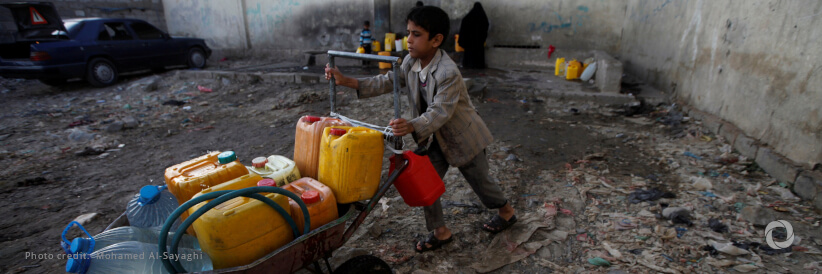A vital response project to combat Yemen’s rapidly escalating outbreak of acute watery diarrhea (AWD) has been launched by WHO, in collaboration with Yemen’s Ministry of Public Health and Population. The project is generously funded by the King Salman Humanitarian Aid and Relief Centre (KSrelief).
Since mid-March 2024, Yemen has seen a dramatic surge in AWD cases, with 29 536 suspected cases reported by 25 April 2024. With heavy seasonal rains affecting already fragile water and sanitation systems, each day currently brings 500 to 1000 new cases, making the situation even more urgent.
The 12-month project, costing US$ 3 million, is set to directly benefit more than 4.7 million people and indirectly help a further 520 175 individuals. Through collaborative efforts and strategic interventions, supported by the KSrelief funding, WHO will work tirelessly to mitigate the crisis and safeguard public health in Yemen.
“This project is a lifeline for Yemen’s health system amid a rapidly escalating situation. Through strategic coordination and targeted interventions, we aim to swiftly detect and confirm AWD cases, improve case management, and prevent further transmission among affected communities,” said Dr Arturo Pesigan, WHO Representative to Yemen.
KSrelief believes that this is an urgent situation that requires direct and swift intervention to combat the outbreak. Through this partnership, we aim to significantly reduce the impact of AWD on communities and strengthen the country’s resilience against health emergencies, ensuring a healthier future for Yemen, stated Dr. Abdullah Al-Muallem, Health and Environmental Aid Department Director
The project focuses on 3 key outcomes: enhancing early AWD detection, improving severe case management, and preventing community transmission. Its intended impact could prove crucial in reducing AWD-related health risks and strengthening Yemen’s ability to handle future health challenges.

